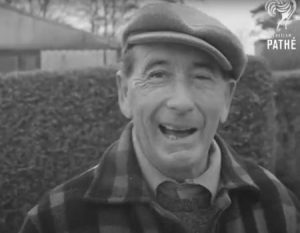
Born Henry Ryan Price on the 16th of August 1912 but quickly becoming known by his middle name, Ryan Price’s horse racing career actually began as a jockey. He was based in the East Lavant area of West Sussex but moved to Sutton Bank, Yorkshire, in order to take up his role as a trainer.
It was a decision that would prove to be inspired, with Price being named the Champion National Hunt Trainer on five separate occasions in a career that saw him win most of the biggest races in the sport. Not only did he train National Hunt winners, but he also trained two Classic winners. He died n the 16th of August 1986, aged 74.
About
Not to be confused with Ryan Price, who began his amateur racing career on the back of Dino Velvet in September 2023, Captain Ryan Price was born in Hindhead, Surrey. Having started in the industry as a jockey, he quickly switched to being a trainer and saw his burgeoning career interrupted by the outbreak of the Second World War. He served with the 7th Battalion of the North Staffordshire Regiment before joining No. 6 Commando for the D-Day landing. When he was discharged from serve, he returned to training racehorses and eventually found himself at Downs House in the West Sussex town of Findon.
He was so adept at his work that he was crowned Champion National Hunt Trainer five times between 1954 and 1967, in no small part due to several wins in the Champion Hurdle. Not content with all but mastering the world of National Hunt racing, Price began having more of a focus on the flat from 1970. That proved to be a clever move, with Price trained horses winning the Epsom Oaks in 1972 and the St Leger in 1975. In spite of this, it will always be the world of jump racing that he is best remembered for. That he won the Grand National with Kilmore in 1962 will go down as one of the most important wins of his career.
Major Successes
Though not quite as prolific as some trainers in terms of sheer numbers, there is no question that Price enjoyed some big wins during his career. Here is a look at some of the races that he won at least once:
- Grand National
- Cheltenham Gold Cup
- Triumph Hurdle
- Epsom Oaks
- St Leger Stakes
Horses Trained
Price was an owner as well as a trainer, becoming one of the first British trainers to buy in young jumpers from France. He worked with countless horses during his career, including Cesarewitch Handicap winner Persian Lander and Grand National winner Kilmore. Here is a look at some of the more notable ones that were trained to success by Price:
Ginevra
Ginevra’s career started relatively quietly, winning two mostly unknown races as a two-year-old. She began to improve as the season went on, though, enjoying a victory in the Ladbrokes Oaks Trial. That should have been seen as a sign of what was to come, with the horse going on to win the Oaks itself later in the year. She was unlucky not to do better in other big flat races, coming third in both the Yorkshire Oaks and the St Leger. In fact, she may well have gone on to be an impressive horse on the flat if not for the fact that she was sold to a Japanese breeding syndicate at the end of her three-year-old racing year.
Bruni
Irish bred but British trained, Bruni raced from 1974 until 1977 and won five races across 21 starts. There is little question that one of his most impressive wins came in the Classic St Leger Stakes, which he won by one of the biggest margins in the history of the competition. Almost as if he knew of his success, he then became a difficult horse to work with, but Price still got him to finish second in the King George & Queen Elizabeth Stakes, adding the Yorkshire Cup and Cumberland Lodge Stakes to the list. A grey bred in County Kildare, the horse was retired to stud after failed to win anything in his five-year-old season.
M-Lolshan
A tough and consistent horse across middle distance races, M-Lolshan was trained by Price to success, either winning or finishing in the places in 19 of the 22 starts that he had. Not only that, but he managed to win some big-name races. He was the winner of the King George V Stakes in 1977, following that up with victory in the Irish St Leger. He placed in all of the St Leger, March Stakes and Geoffrey Freer Stakes and then headed over to Europe and won the Grosser Preis von Baden in Germany. Though he didn’t make much impact when he was put out to stud, he did come fourth in both the King George VI and Queen Elizabeth Stakes and the Coronation Cup.
